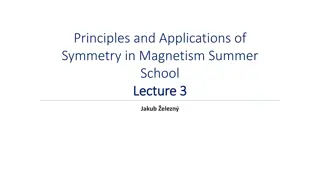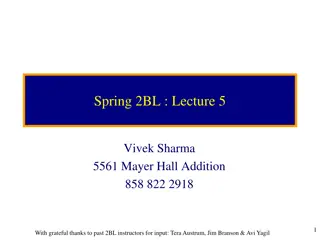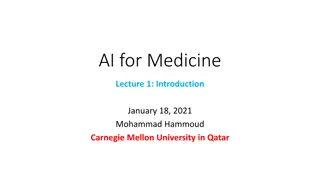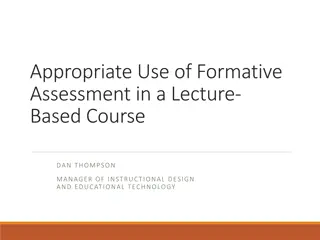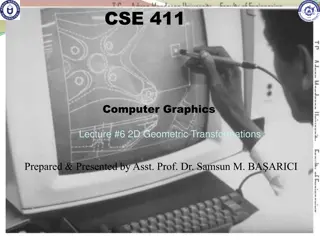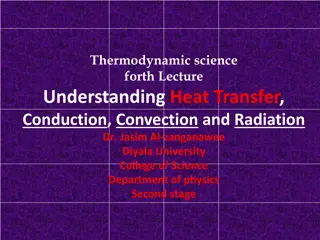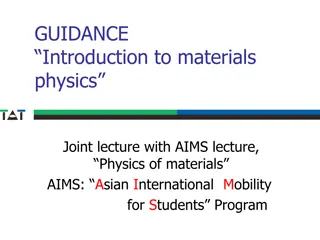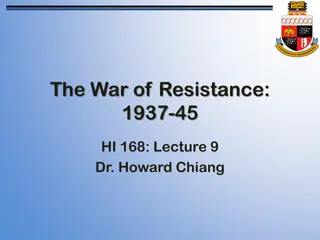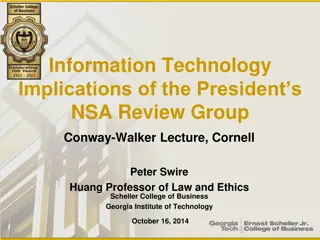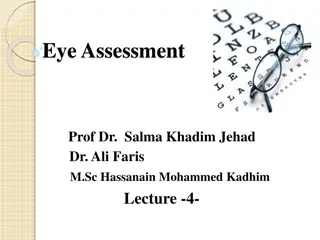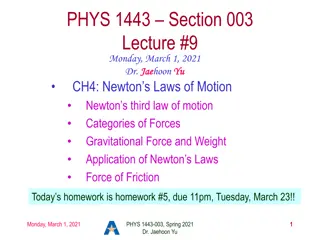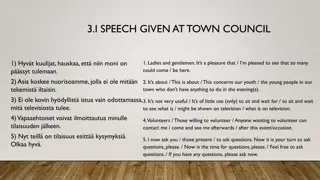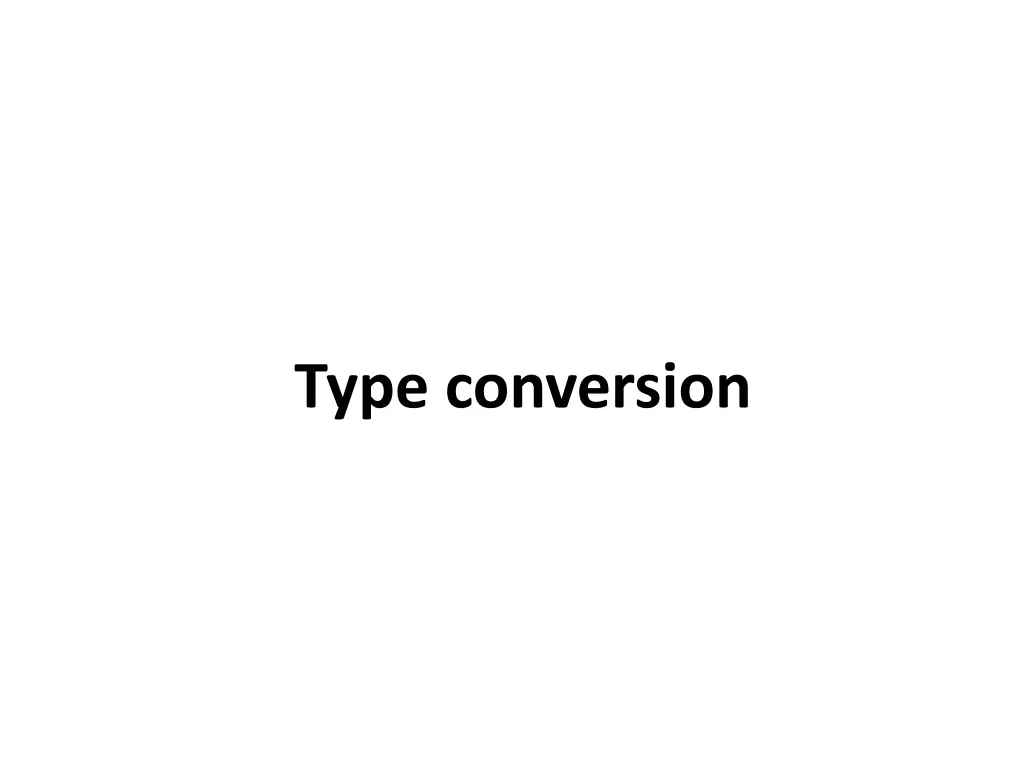
Understanding Implicit Type Conversions in Expressions
Learn how implicit type conversions work in expressions, allowing for the mixing of different types and automatic conversion of values. Discover the rules and scenarios where implicit type conversions occur and how the compiler handles them seamlessly to ensure proper evaluation without data loss.
Download Presentation

Please find below an Image/Link to download the presentation.
The content on the website is provided AS IS for your information and personal use only. It may not be sold, licensed, or shared on other websites without obtaining consent from the author. If you encounter any issues during the download, it is possible that the publisher has removed the file from their server.
You are allowed to download the files provided on this website for personal or commercial use, subject to the condition that they are used lawfully. All files are the property of their respective owners.
The content on the website is provided AS IS for your information and personal use only. It may not be sold, licensed, or shared on other websites without obtaining consent from the author.
E N D
Presentation Transcript
Type Conversions in Expressions C permits mixing of constants and variables of different types in an expression C automatically converts any intermediate values to the proper type so that the expression can be evaluated without losing any signification This automatic conversion is known as Implicit Type Conversion 5/10/2025 2
Implicit Type Conversions Done by the compiler on its own, without any external trigger from the user. Generally takes place when in an expression more than one data type is present All the data types of the variables are upgraded to the data type of the variable with largest data type. bool -> char -> short int -> int -> unsigned int -> long -> unsigned -> long long -> float -> double -> long double It is possible for implicit conversions to lose information, signs can be lost (when signed is implicitly converted to unsigned), and overflow can occur (when long long is implicitly converted to float). 5/10/2025 3
Implicit Type Conversions in Expressions The following are the sequence of rules that are applied while evaluating expressions Lower Type Operands Higher Type Operands Short or Char int One operand is Long double, the other will be converted to long double Result is also long double One operand is double, the other will be converted to double Result is also double One operand is float, the other will be converted to float Result is also float One operand is unsigned Long int, the other will be converted to unsigned long int Result is also unsigned long int 5/10/2025 4
Implicit Type Conversions in Expressions Lower Type Operands Higher Type Operands One operand is Long int, and the other is unsigned int then a) If unsigned int can be converted to long int the unsigned int operand will be converted b) Else both operands will be converted to unsigned long int a) Result will be long int b) Result will be unsigned long int One operand is Long int, the other will be converted to long int Result is also long int One operand is unsigned Long int, the other will be converted to unsigned long int Result is also unsigned long int 5/10/2025 5
Implicit Type Conversions in Expressions The final result of an expression is converted to the type of the variable on the left of the assignment sign before assigning the value to it However the following changes are introduced during the final assignment Float to int causes truncation of the fractional part Double to float caused rounding of digits Long int to int causes dropping of the excess higher order bits 5/10/2025 6
Implicit Type Conversion Example int main() { int x = 10; char y = 'a'; // character c // integer x x = x + y; float z = x + 1.0; printf("x = %d, z = %f", x, z); return 0; } Output: x = 107, z = 108.000000 5/10/2025 7
Explicit Type Conversions There are instances when we want to force a type conversion in a way that is different from the automatic conversion E.g ratio=57/67 Since 57 and 67 are integers in the program , the decimal part of the result of the division would be lost and ratio would represent a wrong figure This problem can be solved by converting locally as one of the variables to the floating point as shown below: ratio= (float) 57/67 5/10/2025 8
Type Conversions in Expressions The operator (float) converts the 57 to floating point then using the rule of automatic conversion The division is performed in floating point mode, thus retaining the fractional part of result The general form of a cast is The process of such a local conversion is known as explicit conversion or casting a value (type-name) expression 5/10/2025 9
The Type Cast Operator int a =150; float f; f = (float) a / 100; // type cast operator The type cast operator has the effect of converting the value of the variable a to type float for the purpose of evaluation of the expression. This operator does NOT permanently affect the value of the variable a ; The type cast operator has a higher precedence than all the arithmetic operators except the unary minus and unary plus. Examples of the use of type cast operator: (int) 29.55 + (int) 21.99 results in 29 + 21 (float) 6 / (float) 4 results in 1.5 (float) 6 / 4 results in 1.5 10 5/10/2025
Type Conversions in Expressions Example Action x=(int) 7.5 7.5 is converted to integer by truncation Evaluated as 21/4 and the result would be 5 Division is done in floating point mode The result of a+b is converted to integer a is converted to integer and then added to b Converts x to double before using it a=(int) 21.3/(int)4.5 b=(double)sum/n y=(int)(a+b) z=(int)a+b p=cos((double)x) 5/10/2025 11
Integer and Floating-Point Conversions Assign an integer value to a floating variable: does not cause any change in the value of the number; the value is simply converted by the system and stored in the floating format. Assign a floating-point value to an integer variable: the decimal portion of the number gets truncated. Integer arithmetic (division): int divided to int => result is integer division int divided to float or float divided to int => result is real division (floating-point) 12 5/10/2025
Integer and Floating-Point Conversions #include <stdio.h> int main () { } float f1 = 123.125, f2; int i1, i2 = -150; i1 = f1; // float to integer conversion printf( float assigned to int produces ); printf( %d\n ,i1); f2 = i2; // integer to float conversion printf( integer assigned to float produces ); printf( %f\n ,f2); i1 = i2 / 100; // integer divided by integer printf( integer divided by 100 produces ); printf( %d\n ,i1); f1 = i2 / 100.0; // integer divided by a float printf( integer divided by 100.0 produces ); printf( %f\n ,f1); return 0; 123 -150.0 -1 -1.5 13 5/10/2025


